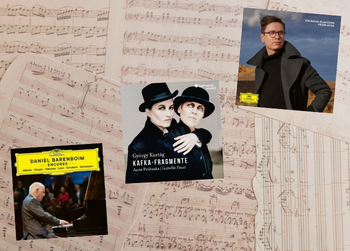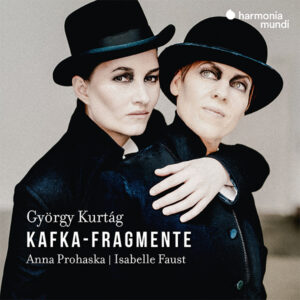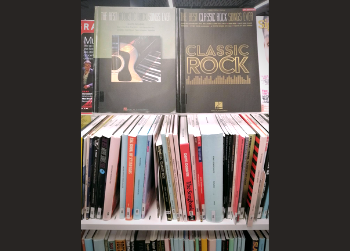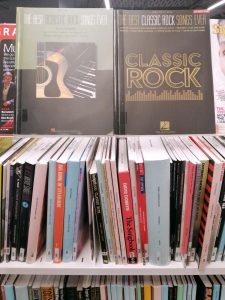On 28 November 2022, Aotearoa lost one of its most ingenious and original composers, Jenny McLeod. While it is impossible to do justice to the scope of her creative achievements in this post, tributes by Elizabeth Kerr, Keith McEwing, and SOUNZ offer fuller portraits of McLeod’s life and work. You can also hear McLeod speaking about her work in her poetic 2016 Lilburn Lecture, and in an interview on the occasion of her eightieth birthday.
McLeod’s command of the craft of composing became evident in one of her early orchestral works, the Little Symphony of 1963. Written partly in response to hearing Stravinsky’s Symphony in C, McLeod’s piece demonstrates her awareness of twentieth-styles, hinting at Shostakovich, Stravinsky, Bartok, and others. However, the piece is entirely original in its construction and expression. The Little Symphony also exemplifies McLeod’s command of counterpoint and deft hand at orchestration, all of which belie the fact that she was just in the third year of a Bachelor of Music degree when she composed the piece.
From that point on, McLeod’s music encompassed a great array of genres, some requiring gigantic forces with significant community involvement: her Earth and Sky (1968) is a multimedia work involving multiple choirs, a large orchestra, dancers, children, and recorded narration. Similarly, Under the Sun (1970), composed to mark the centenary of Palmerston North included required four orchestras, adults’ and children’s choirs, a five-person rock combo, projected paintings by children from local schools, and the dance participation of the audience. In complete contrast to these massive, cross-genre works are McLeod’s chamber and solo pieces, including the song cycles Under Southern Skies for mezzo-soprano and piano, and Peaks of Cloud for tenor and piano, and of course, the twenty-four Tone Clock Pieces for solo piano.
Wellington City Library’s classical music collections hold a variety of McLeod’s compositions, as well as her poetry. In this post, we offer a selection of this material, encompassing a variety of repertoire that demonstrates the inimitable craft, innovation, and beauty of her music.
 Portrait with piano / McLeod, Jennifer Helen
Portrait with piano / McLeod, Jennifer Helen
A collection of fine music for solo piano and ensembles by Jenny McLeod, this 2021 release from Atoll Records includes performances by several outstanding New Zealand musicians, including pianists Rae de Lisle, Sarah Watkins, and Stephen De Pledge, percussionist Eric Renick, and violinist Andrew Beer. The repertoire spans five decades of McLeod’s creative life, from the exceptional Piano Piece, composed in 1965 while she was studying with Olivier Messiaen in Paris, to the Seascapes for Trio, arrangements of Tone Clock piece VIII and Tone Clock piece XI dating from 2015. The quality of the music and the performances is exceptional throughout, making for a bold and nuanced Portrait with Piano
The emperor and the nightingale / McLeod, Jennifer Helen
The Emperor and the Nightingale is a work for orchestra and narrator, bringing to life Hans Christian Andersen’s fairy tale of the same name. The work was commissioned by the Wellington Regional Orchestra (now Orchestra Wellington) for performance at the 1986 International Festival of the Arts in Wellington. In this recording by the NZSO, Helen Medlyn provides a memorable narration of the tale. Pianist Eugene Abulescu performs the Rock Concerto, an arrangement of McLeod’s 1985 Rock Sonata. In the composer’s own words, the Concerto is ‘strongly impelled by the spirit of Beethoven, Mozart, Schubert, Liszt, Debussy, Gershwin …’ who are the ‘distant friends’ alluded to in the first movement of the piece. The central movement of the Concerto, ‘Elegy for Charlie French’ is both tender and austere, before the ‘Latino romp’ of the finale. This recording is a landmark for New Zealand music and merits a larger audience.
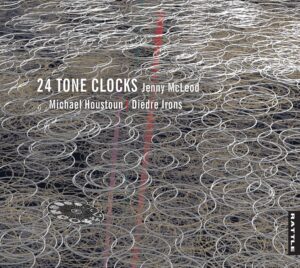 24 tone clocks / McLeod, Jennifer Helen
24 tone clocks / McLeod, Jennifer Helen
Dierdre Irons and Michael Houstoun perform all twenty-four of the Tone Clock Pieces in this monument to three decades of McLeod’s work and her fascination with Peter Schat’s theory of chromatic harmony that she discovered in the late 1980s. The performances by Irons and Houstoun are nuanced and pellucid, demonstrating both musicians’ longstanding connections with these pieces. As such, this 2016 release from Rattle Records is also an invaluable testament to the artistry of two of New Zealand’s outstanding pianists.
Mutterings from a spiry crag / McLeod, Jennifer Helen
A poet of words as well as of tones, McLeod’s first collected work of poetry, explores the local landscape around her home in Pukerua Bay and comments on international crises. As with McLeod’s music, the Mutterings from a Spiry Crag the themes are eclectic, witty, expressive, and cerebral. This book is part of the New Zealand reference collection and is not available for loan, but you can access it by contacting Heritage Queries.
Talking music : conversations with New Zealand musicians / Shieff, Sarah
In this book, Sarah Shieff has interviewed more than a dozen leading figures in New Zealand classical music to assemble a series of fascinating biographical essays, including a profile of Jenny McLeod. The reflections of McLeod and her peers on their training and careers offer fascinating personal perspectives on performing and composing. We also read candid accounts of how these artists’ dedication to music has shaped their personal and professional lives in different ways. Shieff’s Talking Music is an engaging, thought-provoking historical record of significant lives in New Zealand music. This book is part of the New Zealand reference collection and is not available for loan, but you can access it by contacting Heritage Queries.
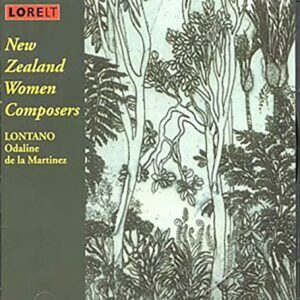 New Zealand women composers
New Zealand women composers
Composer and conductor Odaline de la Martinez directs the British ensemble Lontano in performances of music by four New Zealand women, Dorothy Ker, Gillian Whitehead, Annea Lockwood, and Jenny McLeod. McLeod’s For Seven (1966) dates from her time in Cologne studying with Stockhausen, and the composer described it to Elizabeth Ker as her “high European effort” devised mathematically and structured around patterns of accelerandi and ritardandi. Scored for flute, clarinet, vibraphone/marimba, piano, violin, viola, and cello, Four Seven received its premiere in 1966, before further performances in Darmstadt and Berlin. There was no New Zealand premiere until 1992, but the piece has subsequently been performed and recorded by Stroma. This album demonstrates not only the quality of McLeod’s composition but also the rich talent of New Zealand’s composing women.


